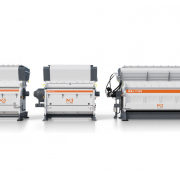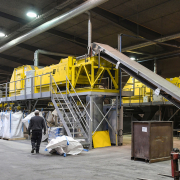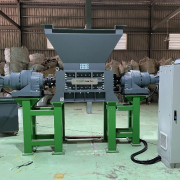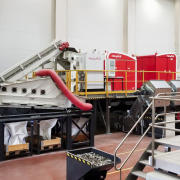Additional Mixed Waste Sorting Systems Prior to Incineration Are Not the Silver Bullet for Achieving a Circular Economy
Some stakeholders believe that mixed waste sorting systems prior to thermal treatment and disposal is the silver bullet that will allow the waste management sector to achieve the EU’s circular economy objectives. This is the result of a recent study published on 16 February 2023 (1) and also reflected in some amendment proposals within the ongoing revisions of the Renewable Energies Directive and the Industrial Emissions Directive.
However, this is a dangerous message as it undermines years of awareness raising and investments made by the sector to implement and ensure the functionality of source separation of municipal waste by our citizens. Source separation is mandatory under the Waste Framework Directive precisely to ensure quality recycling. Consequently, separately collected waste shall not be incinerated nor landfilled. Exceptions to separate collection are possible in specific circumstances, and only then, a prior mixed sorting system should play a role. FEAD strongly supports the improvement and increase of ‘source separation’ as the most efficient and effective way to ensure quality recycling.
In addition to source separation, the implementation of mandatory deposit return
schemes in the EU is foreseen in the Commission’s proposal to revise the current Packaging and Packaging Waste Directive. This will already prevent the biggest part of effectively recyclable waste from being incinerated or landfilled, as will be the case of PET bottles or aluminium cans, which may still be found in mixed municipal waste streams as common ‘to-go’ consumables. Taking the example of Germany, where the separate collection rate is one of the highest in the EU, with a mature EPR and deposit return system, the recent study itself determines that further improvements in plastic packaging collection rates are difficult to achieve.
Remaining waste fractions that may be sorted out prior to thermal treatment and disposal will mostly not be recyclable, such as non-recyclable plastic packaging, or paper in general, that will be highly and irreversibly contaminated after being mixed with wet waste fractions. The study shows that the addition of a mixed waste sorting system only increases the recycling rate for paper very minimally. A clear indication that such system is not needed there.
The implementation of such mixed waste sorting systems, if made mandatory for all plants, will have generalised additional resource and energy consumption related costs and environmental impacts (transport of sorted materials, construction and operation of the systems, etc.) at the expense of EU citizens. These factors have not been considered in the study and their impact could be disproportionately high in relation to the benefits they might bring in the achievement of the EU targets.
In conclusion, FEAD believes that there are more cost-efficient alternative measures for which there are ongoing investments being made by the industry and that should be prioritised. Mixed waste sorting systems are not a silver bullet solution to achieving circular economy objectives. Instead, we urge the improvement and increase of source separation and all positive measures that foster the EU recycling markets.
Claudia Mensi, FEAD President said: “FEAD considers the holistic approach to policies in the waste sector to be of paramount importance. The diversity within the EU and within the Member States and the related environmental impact, that such proposals could have, are often overlooked. The installation of mixed municipal waste sorting systems prior to incineration or disposal may be a solution only in specific local circumstances where source separation cannot be implemented with the necessary standards. For the rest, our citizens’ participation via source separation will always be preferable.”
Source: FEAD (Brussels, February 17, 2023)









